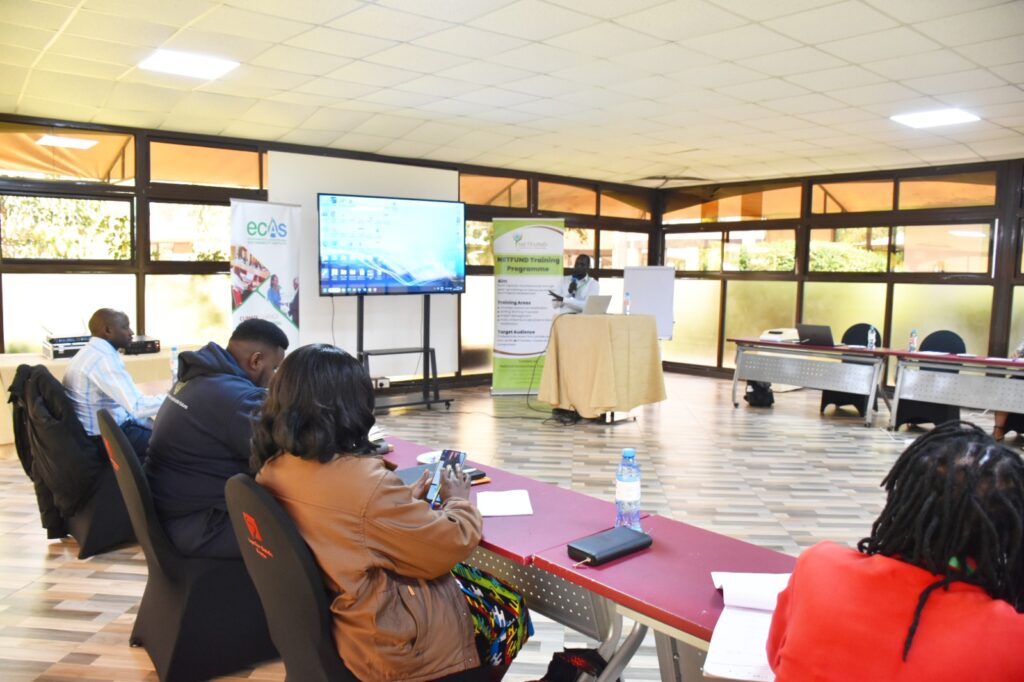
CONCEPT NOTE
INTERNATIONAL TRAINING TRANSFORMING THE ROLE OF LEARNING AND DEVELOPMENT
COURSE BACKGROUND
In a rapidly evolving business landscape, Learning and Development (L&D) has become a strategic function that drives organizational growth, innovation, and competitiveness. Traditional training methods are no longer sufficient to meet the complex demands of a digital, knowledge-driven economy. Instead, organizations must adopt innovative, technology-driven, and learner-centric approaches to workforce development.
The “Transforming the Role of Learning and Development” course, offered by the Environmental Capacities and Sustainability (ECAS) Institute, is designed to help HR professionals, L&D specialists, and organizational leaders rethink and revamp their learning strategies. This course explores the latest trends in L&D, such as digital learning, microlearning, personalized training, and performance-based learning models. Participants will gain the skills and insights needed to create agile, data-driven, and impactful learning programs that align with business objectives and employee needs.
Through a mix of theoretical foundations, practical exercises, and case studies, this course will enable professionals to transform their L&D functions into a strategic pillar of their organizations, fostering continuous learning, skill enhancement, and career development.
COURSE OBJECTIVES OF THE TRAINING
This course aims to:
- Equip participants with a deep understanding of modern L&D strategies.
- Introduce innovative learning technologies and digital platforms.
- Explore data-driven approaches to measuring learning effectiveness.
- Highlight the role of L&D in organizational change and transformation.
- Enable participants to design customized and agile learning programs.
- Address challenges in employee engagement and knowledge retention.
- Provide best practices in leadership development and skills training.
- Foster a culture of continuous learning and professional development.
WHAT YOU WILL LEARN
Participants will gain:
- Knowledge of cutting-edge trends in corporate learning and skill development.
- Strategies to integrate digital learning tools, AI, and automation in training programs.
- Techniques for personalizing and adapting learning experiences to diverse workforces.
- Insights into developing high-impact leadership and competency-based training.
- Methods for assessing and improving learning outcomes and return on investment (ROI).
- Best practices for fostering a strong learning culture within organizations.
- Tools for designing and implementing microlearning, gamification, and blended learning strategies.
- Case studies on organizations that have successfully transformed their L&D approaches.
DURATION AND PROGRAM
TARGET PARTICIPANTS
This course is ideal for HR professionals, Learning & Development managers, corporate trainers, instructional designers, business leaders, and professionals responsible for talent development and workforce learning.
It is also suitable for consultants, educators, and policymakers looking to enhance organizational learning strategies, drive continuous professional development, and align training with business performance.
TRAINING STYLE
This course follows an interactive and hands-on approach, incorporating expert-led discussions, real-world case studies, and group-based problem-solving exercises.
Participants will engage in practical simulations, role-playing scenarios, and the use of digital learning tools to develop and refine effective L&D strategies. The training will emphasize experiential learning, allowing participants to apply best practices directly to workplace situations, ensuring immediate and measurable impact.
TRAINING MODULES
| No | Module | Details | |
| 1. | The Evolving Role of Learning and Development |
|
|
| 2. | Designing Effective and Agile Learning Strategies |
|
|
| 3. | Leveraging Technology in Learning and Development |
|
|
| 4. | Leadership Development and Upskilling Strategies |
|
|
|
5.
|
Measuring Learning Effectiveness and ROI |
|
|
| 6. | Creating a Learning Culture and Employee Engagement |
|
|
| 7. | The Future of Workplace Learning |
|
|
GENERAL NOTES
- Training manuals and additional reference materials are provided to the participants.
- Upon successful completion of this course, participants will be issued with a certificate.
- We can also do this as a tailor-made course to meet organization-wide needs. Contact us to find out more: info@ecasiafrica.org.
- Payment should be sent to our bank account before the start of training and proof of payment sent to: info@ecasiafrica.org.
ABOUT ECAS INSTITUTE
The ECAS Institute designs and delivers independent and targeted training, research, and consulting services. Our work focusses on climate change and resilience building, carbon markets, renewable energy, nature-based solution, biodiversity conservation, agriculture and food systems, We are located in Nairobi Kenya and work across the African region. We have implemented training and research assignments in Kenya, Tanzania, Uganda, South Sudan, Somalia, Malawi, Rwanda, Congo, and South Africa. Globally, we have supported our partners from the UK, Denmark, Italy, Sweden, Germany, and USA.

